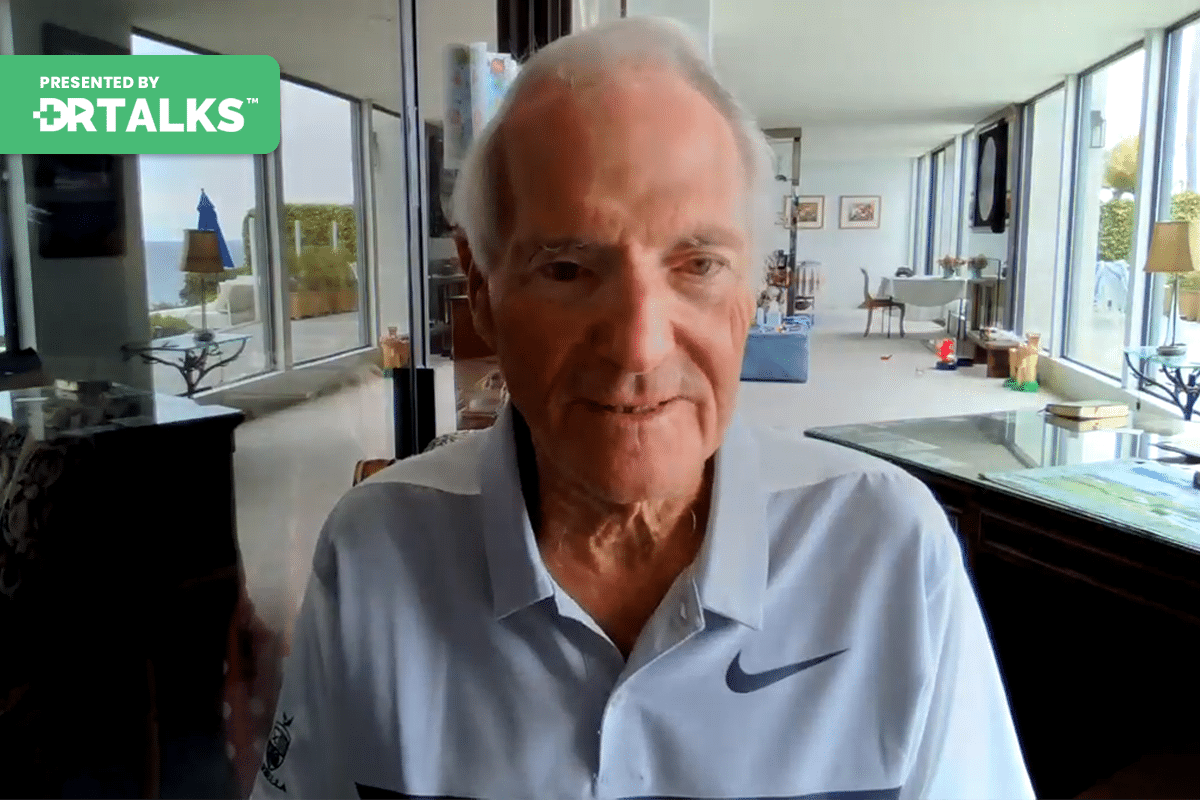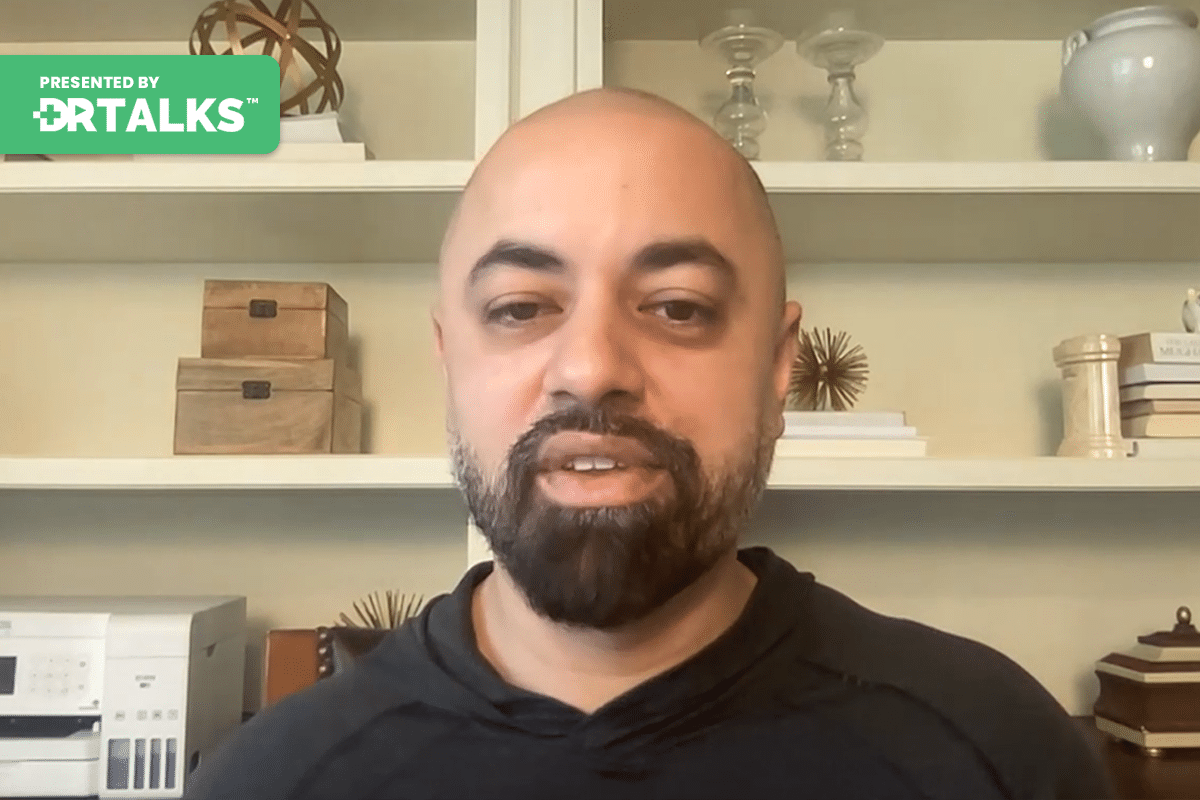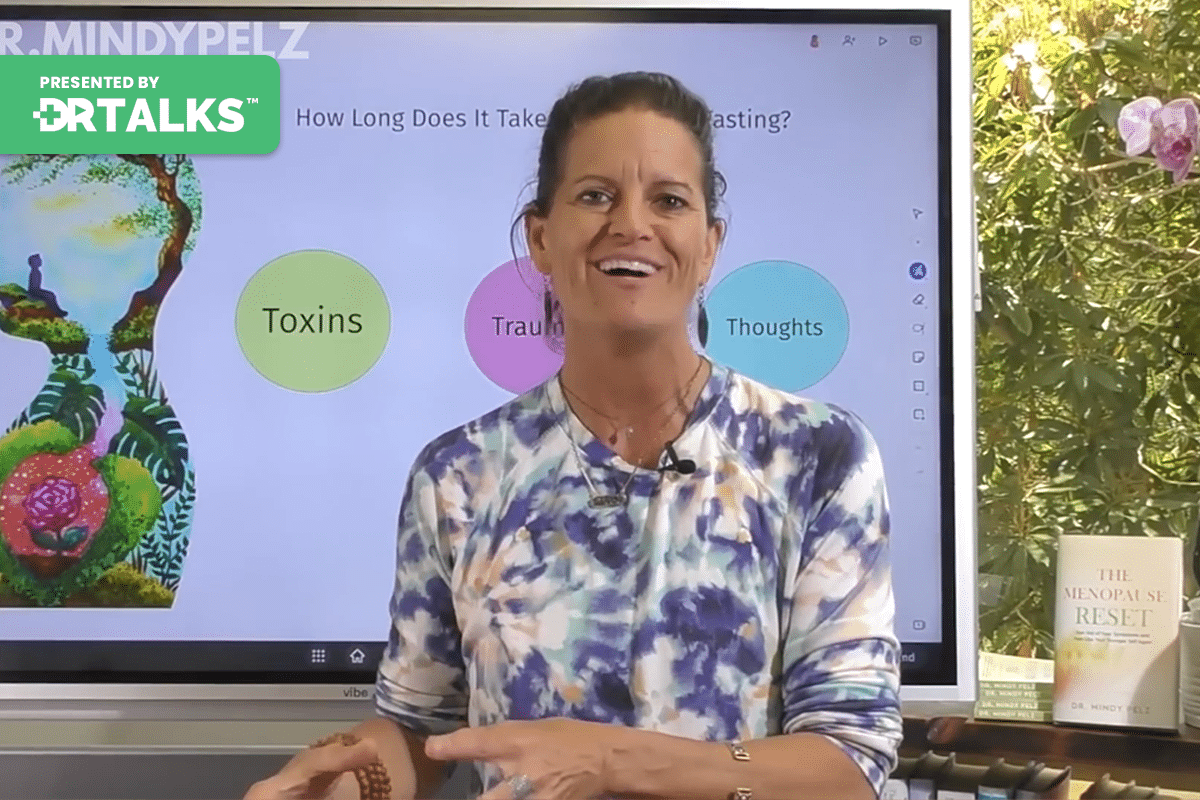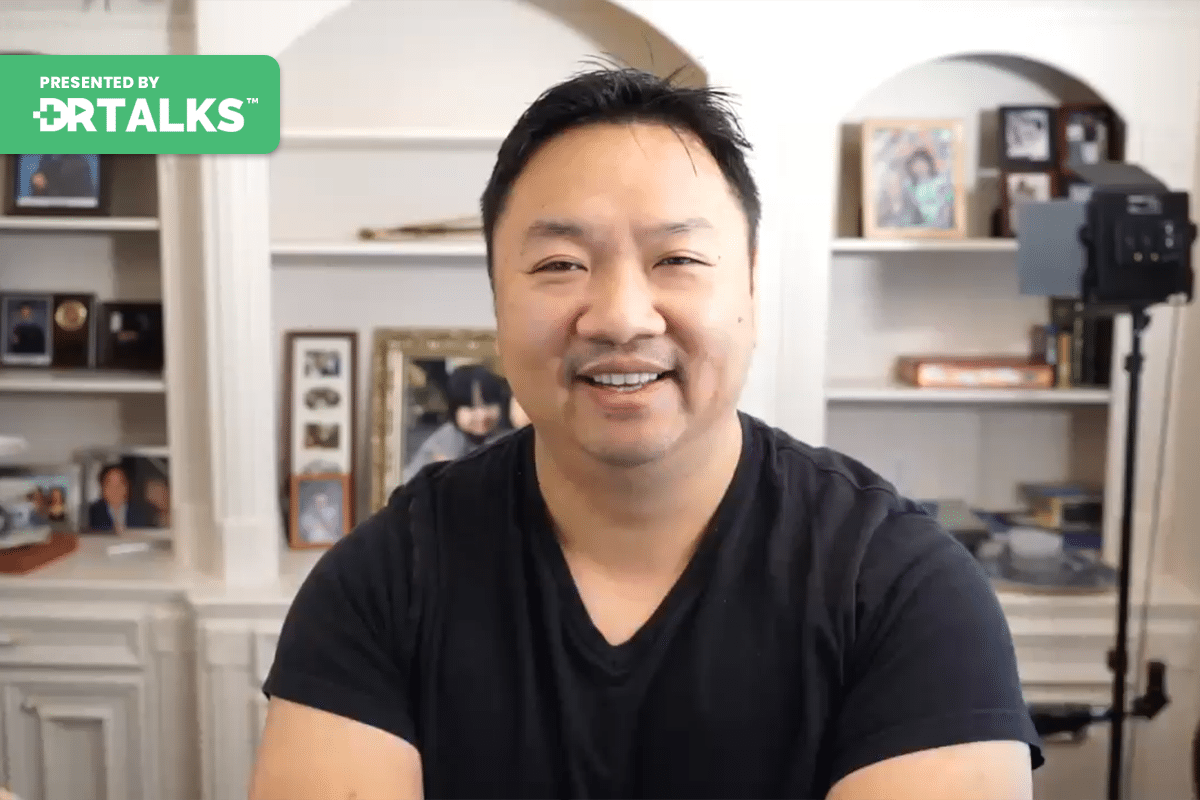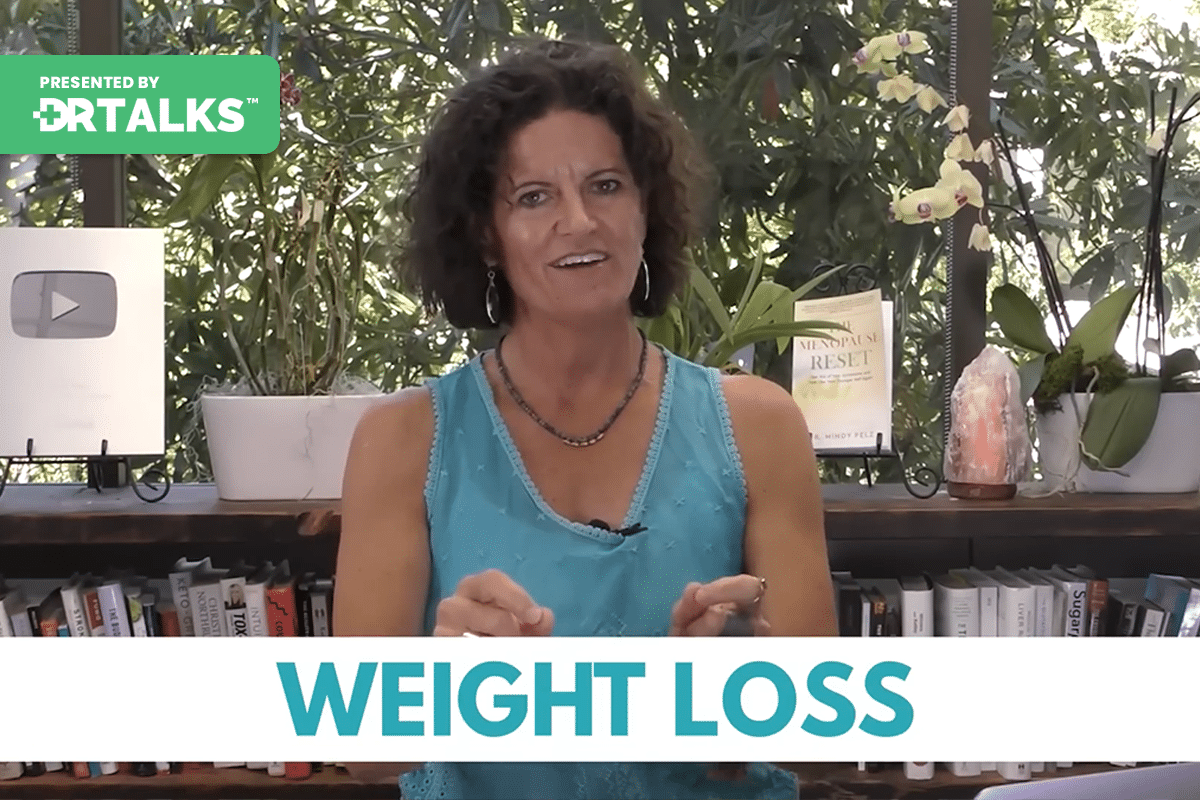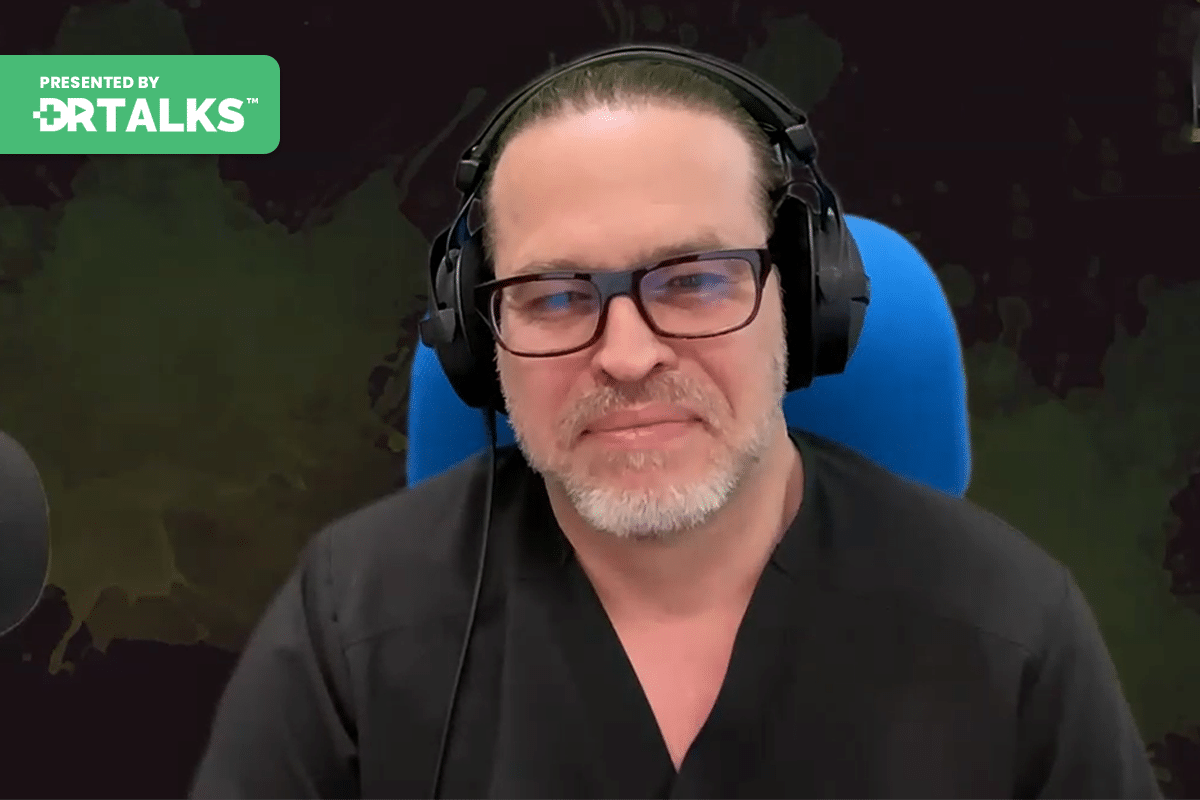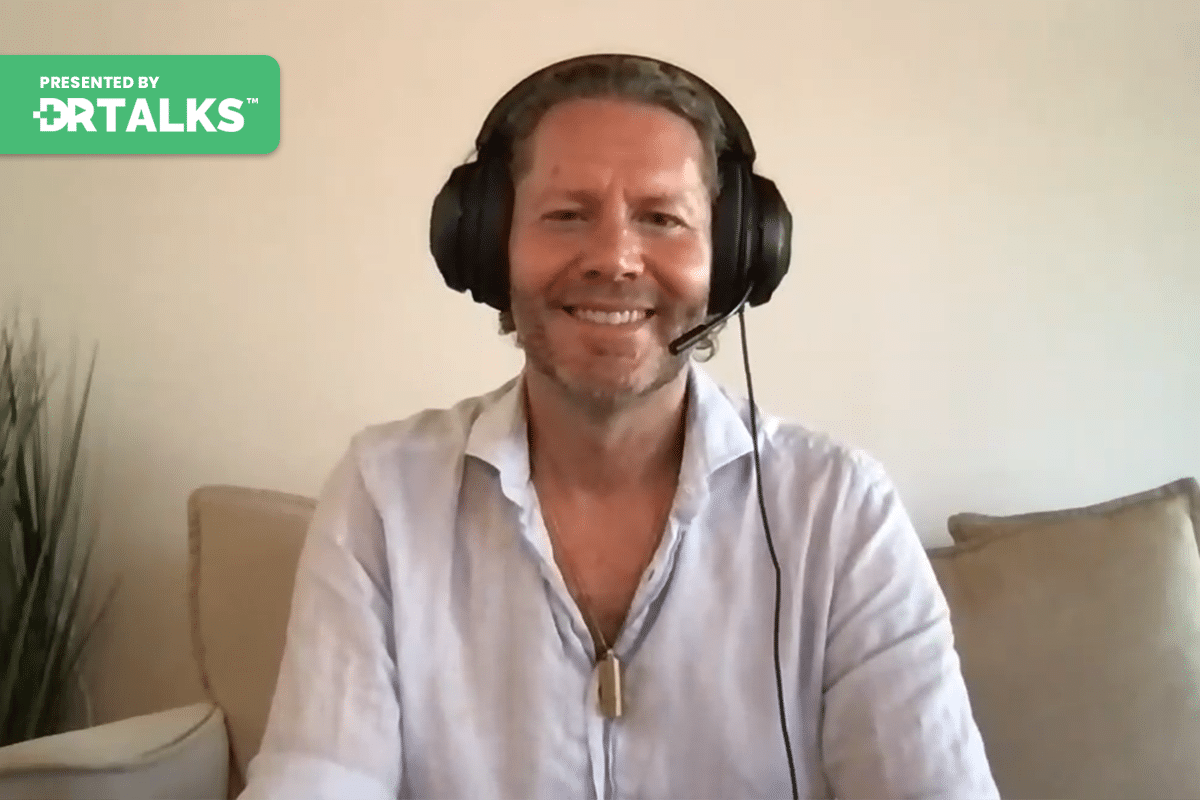Join the discussion below
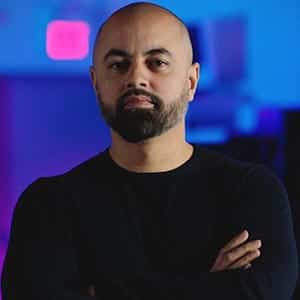
Kashif Khan is the Chief Executive Officer and Founder of The DNA Company, where personalized medicine is being pioneered through unique insights into the human genome. With the largest study of its kind globally, The DNA Company has developed a functional approach to genomic interpretation overlaying environment, nutrition, and lifestyle... Read More
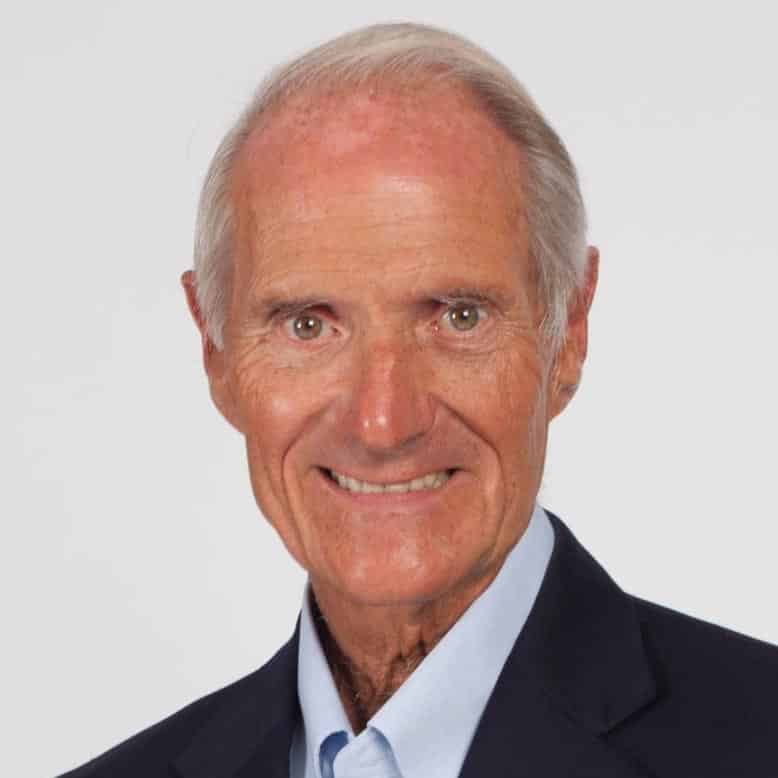
William Sears, MD, has been advising busy parents on how to raise healthier families for more than 50 years, and now has turned his attention to the specialty of lifestyle medicine. He is the co-founder of AskDrSears.com and the Dr. Sears Wellness Institute, which has certified over 12,000 Health Coaches... Read More
- Delve into Dr. William Sears’ personal journey of harnessing the power of epigenetics and nutrigenetics to mitigate genetic tendencies toward colon cancer, and learn how to apply these principles in your own life
- Understand the importance of sleep in gene health, and curate your personalized sleep regimen that aligns with the principles of epigenetics for healthy aging
- Learn practical tips and strategies for integrating epigenetics and nutrigenetics into your daily routine, regardless of your age, to promote optimal health and wellness
Related Topics
Belief Effect, Cancer, Genetics, Nutrition, Omega-3, Personalization, Salad, Salmon, Smart Snacking, Smoothie, Supplements, Type 2 DiabetesKashif Khan
Everyone we are honored today. We are honored because one of the pioneers of understanding that there’s a different way to approach your health than taking a pill is with us here today. Dr. Bill Sears, thank you for joining us.
William Sears, MD
Thank you, Kashif. My honor.
Kashif Khan
I mean, honestly, the work you’ve done and what you’ve done in terms of moving the needle on people, understanding the books you’ve written, and it’s just incredible that we get to speak to you and get your knowledge and what’s really cool is that this isn’t just you as a clinician treating patients, but this is you and your own personal journey. I think we can start off there, which is you believe that, I believe the same thing, we can’t change our genetics. That’s a house of cards we’ve been dealt, whether it’s good or bad. Here is the deck. But what you can change is your habits and how those genes then behave and what the net outcome is. You are living proof of that because in your family, there’s a history and I don’t want to take the story away from you. Maybe you can dive in as you tell it so well. So tell us what happened there.
William Sears, MD
Well, I had a transformation in April of 1997. I was diagnosed with colon cancer. And cancer, that was a wakeup call. Cancer caused me to care. That’s why I loved your book. The DNA Way so much is because I what I learned from that is, we had a family history of colon cancer. Well, I should have been aware and got screened and took it. Sir, I didn’t do a screening. I was 57 until I got cancer. It was a wakeup call. What I did was realize that the cancer we’re getting cancer caused me to change my life and devote my life to education and giving as many people as I can the tools so they can either heal themselves from cancer like I did or even better prevent themselves from getting cancer and that’s my mission right now. That’s why I loved your book, The DNA Way, because it is like our DNA is not our destiny. It’s just a wake up call. You got some genes in there? They’re going to misbehave if you misbehave. Here are ten things you can do to keep your genes from misbehaving.
Kashif Khan
Yeah, it’s kind of like, what’s the priority? Which misbehavior am I experiencing? But the difficulty people have is how do they action this stuff. But you did this in medical practice like you actually, this was one of the ways you treated people. How did you actually do that, just so people understand it?
William Sears, MD
Well, the first thing I do when I go to and I do many pediatric style surgery or geriatrics old people or all ages, the first thing I will do is say believe you will heal, the belief effect. This is the biggest mystery in medicine culture. We know it’s the well researched. I’m a science based doctor. It’s been well researched that the more you believe you will heal, the more you are likely to heal. What do I think happen? This will be we don’t have the technology to study why yet? Yeah, but if you’re someday maybe companies like you would develop the technology. But what I think is that the brain or our CEO of our immune system or cancer fighter inside. We have a giant immune system that fights all the illnesses. The brain cells, hey, immune system, I’m sending you a text message and the text message is I believe you’re going to heal and I’ll help you. Now go get that cancer cell, go get that virus, go get that covid, whatever it is. That constant belief, I will heal, believe I will heal. Another reason I think of helps is when you’re positive. Positivity promotes longevity. When you’re positive that sends a text message to the stress center and that says, Hey, cool it, when the stress center cools it, your immune system works better. That’s my first tip for patients who believe you will heal.
Kashif Khan
That’s incredible. Now, you did this when you’re actually were dealing with cancer patients. Wasn’t there resistance in terms of their oncologist and other people were like, what’s this rule stuff you’re talking about? We need to medicate people.
William Sears, MD
We’ll see an oncologist. Say you go ahead and say you get a diagnosis just so you’re cautious. Hey! cautious, sorry you got cancer. Yeah. They start off with years of percentage you have of living or dying. Look, Doctor, wait a minute I’m a person, not a percentage. Please, don’t give me statistics. I don’t want to hear them.
So, you want to cheat your oncologist to be positive. You want your oncologist to believe you’re going to heal. So stay positive and demand your health care providers to stay positive also.
Kashif Khan
That’s brilliant because people this interaction of dealing with the clinician, especially when you get to the specialists at the hospital level, there’s somewhat of a hierarchy where you feel like there’s an ivory tower that you can’t speak to and it’s like you did do as you’re told. But really, that person is there to serve you. If the service isn’t what it should be, don’t you do that at a restaurant? Don’t you complain. Don’t you deal with your real estate agent, with your whoever you’re dealing with? You tell them, no, I expected X and you’re giving me Y minus five, so do that. That’s key, because if somebody themselves doesn’t believe something, if you’re a clinician who’s in charge of healing, who doesn’t believe it, that belief, drives every choice they then make. What to give you, how hard to try, who to prioritize. All of that.
William Sears, MD
Exactly. That’s why this is a good book. I like your book.
Kashif Khan
Well, thank you.
William Sears, MD
I wish you well. Because it is so important to say, I tell what this book does? It belongs to the patient’s library is going to help you be the CEO of your medical care. You’re a partner with your health care provider, not a patient. You’re a partner. When you go in, having read things like your book and my book, when you go in armed with that. And you ask questions, your health care, will be like, oh my goodness! I’m dealing with a smart patient. I better upgrade my level of care to the smart patient.
Kashif Khan
Yeah. The squeaky wheel gets the most noise and gets the most attention. For sure. Now, you’ve been doing this for obviously a very long time and you’ve seen so much. How much you talked about belief? How much can you augment or understand how to play with nutrition in terms of cancer and personalization?
William Sears, MD
Yes, nutrition is top priority. It really is because we are a sick society, Kashif. We doctors have always been wimpish, all cautious. You need to lose a little weight or not so much on food. No. Here’s what I do, Kashif when I see a patient who is a junk food eater. I’ll say I’ll measure the waist to the waist that you ordered. I will say, let’s say the patient is, Joe. I’ll say Joe, you’re pre-diabetic. I’m what? Yes, if he doesn’t get it I’ll say your pre-Alzheimer, and he still doesn’t get it. I’ll say Joe, you’re pre-cancer. Because lack of good nutrition set you up for the three top illnesses which we have an epidemic: cancer, Alzheimer’s, and type 2 diabetes. All three. Or you can help prevent them and help heal from them by what you eat. When I had my cancer, I developed a quick five-S diet, I call. I have my patients, look at your hand. You hold the keys to your survival at the palm of your hand. Eat smart, move smart, think smart, sleep smart, share smart. Starting with eat smart, the five-S diet. A smoothie in the morning color conkers adds the light. The more color in the food antioxidants the better Immune system first you.
So put more color in the smoothie I have a 15 ingredients multi-fruit, multi-veggie smoothie in the morning. So I start most mornings with a big smoothie and evenings, second S is salmon. If there is no food on the planet that has the most disease fighting nutrients, than a fillet of wild salmon. Wow. Then in our books, The Healthy Brain Book, I have a list of the nutrients in these foods and there are 11 nutrients in a piece of wild salmon that fight cancer and fight just about any illness you don’t want to get. And the second is the salad. So salmon and salad believe me. Then the fourth is smart snacking. I call it the rule of twos. If we are a nation of gorgers. We eat too fast and we spike our blood sugar and our blood fats too fast and we get sick and tired. I give my patients a rule of two: eat twice as often, eat half as much, chew twice as long and take half time to dine. For the little kids, I say you could be a little woofers and then finally, it’s sometimes they’re just not getting it. I found a phrase in my office that the parents was because the kids will remember, because we’re living also in a constipated society. I say to my kids the better your chew, the better you poo.
And they remember. So, like, you and I do tutoring is like eating is not what comes out of your mouth that matters, it’s the nutrients that are absorbed in your intestines that matter. So, I want to give little phrases that our listeners can remember. What our listeners absorb from our dialog that counts. Then the fifth is smart supplement, science based supplements.
Kashif Khan
So what do you use in terms of supplementation?
William Sears, MD
Well, I used first of all, I use an omega three. Omega three fish oil. I eat the egg, the most scientifically researched supplement on the planet, 22,000 studies. Why? Also I like the fact, Kashif, that good science makes good sense. The way I get my patients to remember, I start with the brain. I said, now your brain is mostly fat. And to remember that “you’re a fat head.” What is the top fat in the brain? Omega three fat. Doctor, I don’t like salmon or I don’t like fish. I’m a vegan. Okay, if you don’t eat it, but you need it, you got to take it. So because you’re a fat head, you need to take DHEA and EPA, which are the top fats in the brain. We have so many sick brains because fat oxidizes then transferred. So, if you leave a piece of fish out overnight and smell it in the morning, it turns out it oxidizes. Therefore, the other supplement should be anti-oxidants. Fruits and vegetables and berries supplements. I take one culture sports and the third, the other one is called Astaxanthin. A great supplement. Astaxanthin is nature’s most powerful antioxidant and it’s what makes Salmon pink. Salmon survive because they eat Astaxanthin from the sea plant, cause it’s a sea plant. So, Astaxanthin like Hawaiian Astaxanthin. Well, I learned about it in Hawaii. It’s a great antioxidant and then vitamin D. Vitamin D because where sun forbids. Forget that old figure of 30, no, you need a vitamin D of 50. So those are the supplements my family take during the day.
Kashif Khan
People don’t recognize it. But Vitamin D is such a crucial micronutrient that does so much. I think we talk about this in the book where there’s 22,000 genes that make up your genome. 2000 of them require vitamin D to express and function properly. So 10% of your human instruction manual is dependent on this one thing. If you don’t have enough, all systems fail.
William Sears, MD
Yes. One message I got from your book that I love. Is that really every cell of your body, your body is only healthy as every cell in it. And every cell in it is always healthy as those millions of genes that make up the cell. So take care of your genes and that’s what I love about your book.
Kashif Khan
Oh, thank you. I know that when you speak about genes, some people have a belief, and this is partly due to the medical process of let’s look at your family history. So some people have a belief that diabetes is in my genes, and breast cancer my mom had it, my grandmother had it. So how do you handle somebody that has this belief or it’s like it’s genetic because it’s in my family?
William Sears, MD
Well, first, I tell them that your genes, all your genes telling you is you have a slightly increased risk. But what your genes telling you is you need to behave by nutrition and movement and take care of yourself. So that’s what your genes tell and really most cancers that you mentioned, most of what you mentioned or maybe you have a 10% genetic influence. Meaning, that 90% of your control of preventing those illnesses is due to lifestyle. The lifestyle overcomes, can overcome, that help overcome your genetic tendency.
Kashif Khan
Yeah. Okay. That’s what we see all the time, especially when it comes to developed conditions where it’s lifestyle, environment and nutrition. Here’s these three buckets that you can triangulate around your genetic code, and those are the three inputs that you’ve in clinical practice. Just intuitively, you have this algorithm running in your head of how to drive people through these things. The threats today seem to be far greater than what they used to be.
William Sears, MD
That’s why in our wellness institute, our motto is we call it the Lean, L.E.A.N. Lifestyle, Exercise, Attitude and Nutrition. Those are the four changes you can make. It helps your genes behave for your health.
Kashif Khan
How do if your genes are behaving? How does somebody know when they’re doing things right?
William Sears, MD
Well, first of all, that’s what your book says. You get your genes tests, the xenotype. I didn’t know much about this stuff at all until my wife got breast cancer three years ago and healed fine. I went into the genetics of her breast cancer. I spent weeks studying the genetics of breast cancer and found we could take her cancer cells and do a genetic typing and just to see how virulent the cancer was. Because not all cancers are the same. Some are kind of lazy. So we’re very vigilant. I asked the oncologist if we could do this virulent test on oracle type. He says, well we can, but it’s not going to change anything, she still needs chemo. So, would you do it please? Well your chances are going to cover is three thousand dollars.. I said, please do it. So they did it. I get a call 10 days later. Bill, I’m happy to report that your wife does not need chemo.
Kashif Khan
Wow.
William Sears, MD
The genetic testing we did that you ask us to do tells us that she has a low virulent type of cancer, so it does not need chemo. I called my insurance company and I said, Hey, I saved you a lot of money, you’re going to pay for it. Aren’t you? Yeah, we’ll pay for it.
Kashif Khan
Amazing. Yeah. That’s a prime example of not only your body in the high variability between us, but even the threats are variable, whether it’s a cancer or whether it’s just the type of pollution that you’re exposed to or whether it’s a problem with the food supply. We don’t all live in the same place. We’re not all exposed to the same things and so we have to hyper personalize, not only call it the prevention, but the disease itself and the exposures. Like, what do I need? Not what about what do people need. What do I need? Where I am, what I do, where I drive to work every day. My life is different than what I may read in a book somewhere. Now in your clinical practice, I know that you dealt with, like you said, a lot of children as well. Over time we’re seeing that metabolic, correct me if I’m wrong, there’s metabolic issues are setting in earlier and earlier.
William Sears, MD
Kashif, you just nailed the prime problem we have right now in our country. We have a mantra. We call it, “Children. our most important national treasure”. And our mission is to nurture and protect them and we’re not doing that. Our type two diabetes is triple. The term adult onset disease doesn’t exist anymore in the doctor’s dictionary. Because kids are getting it, they’re getting a metabolic syndrome that you mentioned at an earlier age. They’re getting autoimmune illnesses at an earlier age or getting cancer at an early age. Every illness in the medical books are occurring at an early age. I’m saying ten year olds with cardiovascular disease. Ten years old, all with hyper high blood pressure. Well, we never saw that years ago.
Kashif Khan
When you dive in, is it mostly the LEAN? That’s the lifestyle, the nutrition, exercise, etc., attitude?
William Sears, MD
No. That’s why we spend a lot of time in nutritional counseling. Another reason these kids are getting so sick is I call it the sitting disease. When look up a patient, I say, Sam, you suffer from the sitting disease. For the what? The sitting disease. You sit too much. Then I draw a picture on how your natural pharmacy that makes medicines for your body and your immune system is located in the lining of your blood vessels. And so when you move, when you dance, and run or swim and walk. That’s just what you’re doing, movement immobilizes your immune system. So don’t have the sitting disease, go out and movement mobilizes my immune system. Say that all the time.
Kashif Khan
I heard you speak about this before and I don’t know the exact number, but I think you said there’s like I think it was 23 key nutrients that’s out of the lining. Is that correct?
William Sears, MD
Yes. You have a good memory out there. Yes. So, I draw a picture similar books of the pharmacy and the line so follow me closely, the lining of your blood vessels has trillions of microscopic medicine bottles. And movement helped them open. The medicines you make are medicines that lower the highs, high blood pressure, high blood cholesterol, high blood sugar, medicines that raise the lows, anti-depressants, anti-anxiety, medicines that heal your hurts, anti-inflammatory, medicines that keep your blood from clotting too much, anticoagulants, all the parts. But what’s important is the medicine you make is better than the medicine you take. Because it’s custom-made just for you.
Kashif Khan
That is incredible. The only way to access it is through movement.
William Sears, MD
Movement mobilizes and opens your pharmacy. I tell my old patients to get out and walk every day walking with a group of friends. I say something like, Oh, I’m opening my own pharmacy, mobilizing my immune system. I’ll say, What are you doing? Tell me about it. And so just and they laugh and they do it.
Kashif Khan
No, that’s incredible, because our bodies are such incredible miracles that we don’t really, truly understand the depth of sophistication on and just that simple thing where here are something you’re going to do anyway. There’s been a connection, some kind of expression type connection where this thing that you do, which our ancestors used to do a lot more than us, is it causes us to unlock. So, how do you do that for someone who’s say ill? I guess that’s when you get to the medication, you take like somebody that can move.
William Sears, MD
Well, sometimes saying you can’t reverse one movement I have them do is isometrics. Now I learned this from friends who were Olympic athletes and sit on airplanes a lot. Isometric means that say you’re on the bed or your can’t go out and run or walk, you can flex and hold your muscles like right now, I’m elevating my legs and holding them and within 20 seconds I’ll feel the burn and when you feel the burn, you’re making muscle and your blood and you can feel your heart rate go up. So, all you need to do is get your heart rate up. So if you can’t get out and run for some medical reason and you have to sit a lot and just sit there like I’m holding it like right now, isometrics. So I press in one hand, against the other. So isometric, which we have in one of our books, The You Wellness Plan, we have it on our website too on how to do isometrics is a great way to get to exercise and get your blood flowing faster, although you’re checking it all for medical reasons.
Kashif Khan
Yeah, that’s incredible. So that’s how sensitive our pharmacy is. That whatever, wherever you’re capable of even that flex will cause it to release. But it’s also how accessible it is. The pharmacy is very accessible. If you’re a little bit out, you just extend your arms.
William Sears, MD
I know you’re very into technology. So you were developing the greatest set of a whole bunch of experts to go and say, I’m going to build the greatest invention in the whole world, the human body. But, we humans are going to mess it up. The way we eat, live, and think. So naturally, you would put into that body it’s natural pharmacy and that’s what we’re talking about. Love your pharmacy, take care of your pharmacy and open your medicine bottles by movement.
Kashif Khan
That’s incredible. You never hear anyone talking about that. I don’t think many people know that.
William Sears, MD
No, they don’t. Actually I didn’t know it until it won a Nobel Prize. Actually, about 25 years ago. They discovered that if you have a real friend of ours taught me all this, you won the Nobel Prize. That we do have but I thought it makes sense to me that somewhere in our body we have our own pharmacy. But nobody talks about it, we don’t know where it is or what medicine it makes. And that’s what my mission in life is to teach people to make their own medicines.
Kashif Khan
Now when it comes to just to get into a little bit more detail there, are we talking about being optimal or are we talking about literally fighting off a disease that somebody may have.
William Sears, MD
Both, prevention and fighting it all? If you want to fight a disease, but medical care right now is the best it ever been, our drugs, our surgery, the robotics and all of that are fantastic. But it’s not enough,, you need to partner with your health care provider by the medicines you make. So the medicines you make and making my own medicine, in addition to the medicine I take is a partnership. Those who do not do well, in my experience, are those who do not personalize or medical care and make their own medicines in addition to the medicines they take. We want both.
Kashif Khan
Incredible and I know we don’t have a lot of time with you and I wish we could keep going. There’s so much to all of you have. Are you still practicing?
William Sears, MD
Yes, It’s my 52nd year in medical practice.
Kashif Khan
How old are you?
William Sears, MD
I love what I do. And the reason is, Kashif, at the end of the day I go home with what I call the helper’s high. Helper’s high. You too, I’m sure, I felt so damn like this. And when I go to sleep, I feel so good because maybe one or two young people have made lifestyle changes. When they’re young and maybe they’ll live 20 to 30 years longer and healthier because what I taught them. So that said, helper’s high that keeps my practice and I’m loving it.
Kashif Khan
And how old are you know?
William Sears, MD
83 years young.
Kashif Khan
Incredible. Yeah. Because your activity level, it’s this age there could be a lot of different pictures painted of what this age looks like. There’s a lot of people that never see this age. Then there’s some people that this is just beginning of a new phase for them. There’s many there’s much more to come. So all of that if I put into a nutshell everything you said today, this becomes a choice if you follow, if you prioritize the right things. Now you’re managing the expression of those messy genes that are functioning well and you’re understanding how your body works. This is an option 83.
William Sears, MD
I love your term prioritize and I say that my also I give them something to remember to make health your hobby.
Kashif Khan
Right.
William Sears, MD
Make health a hobby.
Kashif Khan
Yeah, yeah. What it’s innate and every choice you make and the choice is always the right choice. That’s when you can be 83, doing Zoom calls, doing interviews, and saving the world, and still other 20, 30, 40 years ago. That’s how you got it. I want to thank you because it’s an honor that we got to speak to you today. Thank you for your time, that we’ll make sure everyone has links on how they can connect to you if they’d like to learn more, more. But thank you again. I think this is awesome.
William Sears, MD
Thank you, Kashif.
Downloads

